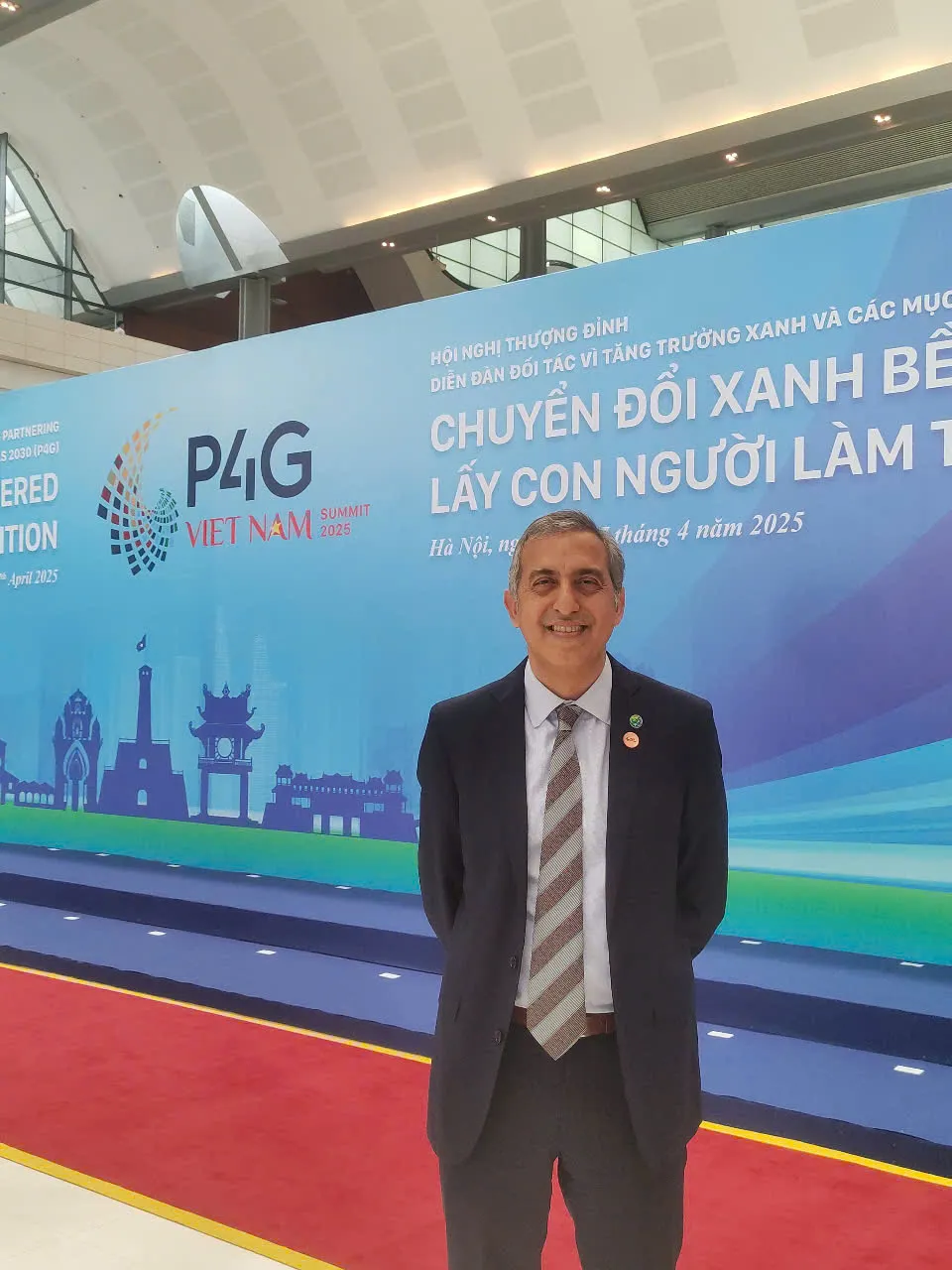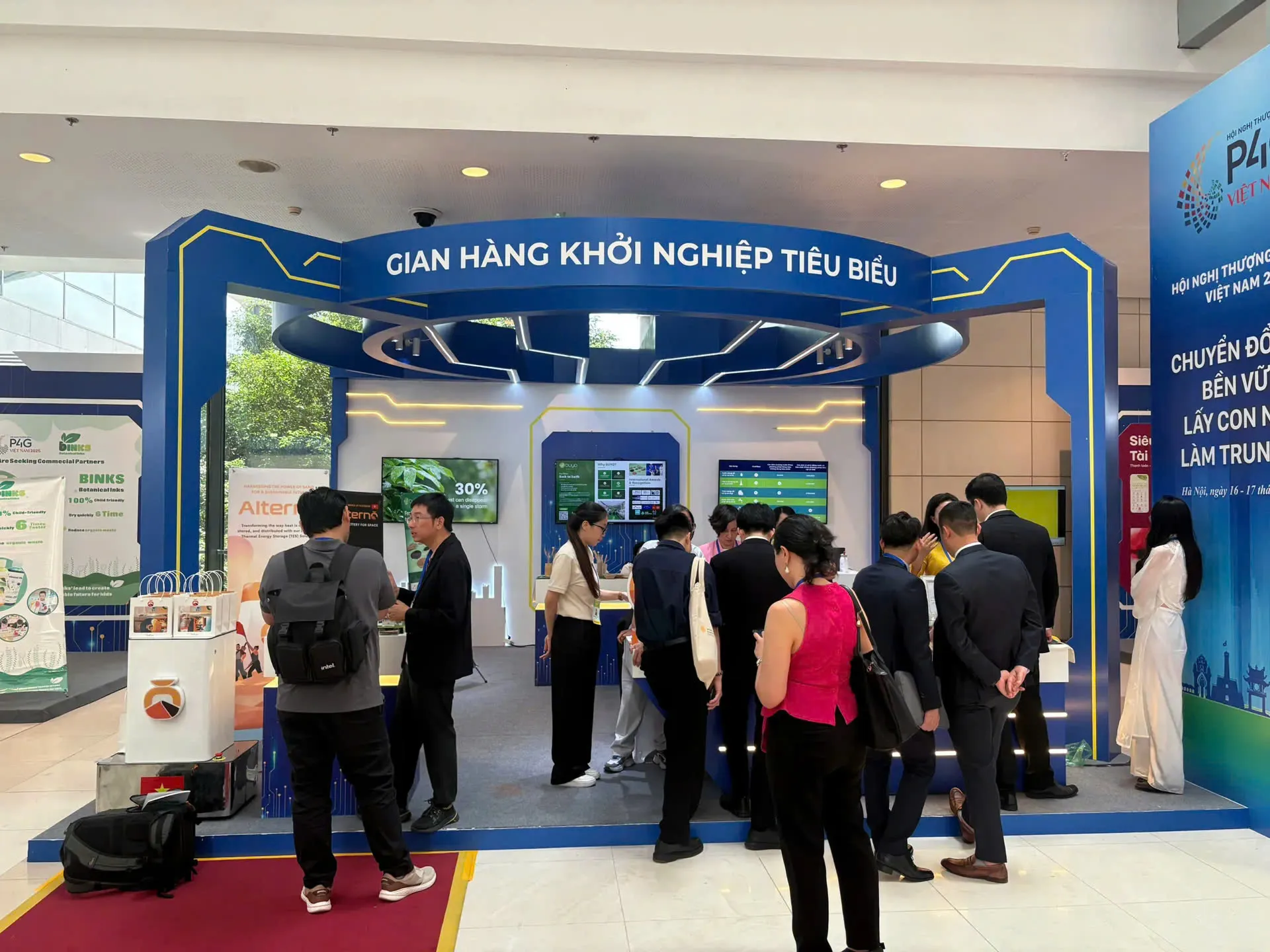Vietnam emerges as a regional leader in green growth: Green Climate Fund
Vietnam is committed to achieving good performance in green growth and sustainable development to improve people's quality of life and boost regional development.
At the 4th Partnering for Green Growth and the Global Goals 2030 (P4G Summit) in Hanoi, Vietnam's leaders pledged to fulfill the country's responsibility to foster green growth and achieve sustainable development.
On the sidelines of the event, Hemant Mandal, Director of the Green Climate Fund's Asia and Pacific Division, spoke to The Hanoi Times about Vietnam's prospects for green growth.

Director of the Department of the Asia and Pacific Region at the Green Climate Fund, Hemant Mandal. Photos: Hoang Nam/The Hanoi Times
Where is Vietnam on the world map of green transition?
Vietnam has gone through an unbelievable transformation and economic growth. From our perspective, we expect Vietnam to keep following the “green transition” path. As we've heard from the summit, the leaders of Vietnam, specifically the prime minister, are pushing the Vietnamese economy to move towards a greener transition.
We want to be part of this transition and support Vietnam's journey because we see Vietnam as one of the key leaders in Asia. The Green Climate Fund works with most developing countries, including Vietnam, and we have participated in several initiatives so far.
Can you give us some details about these projects?
We have several initiatives already underway around the world, including in Vietnam. We hope to leverage and work with P4G member countries in the future.
One is climate-resilient coastal housing, and we've helped people move into more than 4,900 houses. Another is the mangrove planting, which is up and running.
We are also supporting farmers in the highlands with the irrigation system and sustainable practices. More especially, we are looking at energy efficiency across Vietnam, which is now under discussion, and we hope to see how we can support Vietnam move down this path.
We have also worked with the Korean Development Bank to initiate a facility, which targets five countries in Southeast Asia, including Vietnam. This facility will assist tech entrepreneurs to get their businesses up and running with investment and technical advice.
How do you evaluate the potential for green economic investment in Vietnam?
As I mentioned, we see Vietnam as one of the leaders in the region, and there's still a lot of work to be done. We need investment to flow in with different instruments such as equity funds, debt, and loans, and from different types of investors.
But to achieve those, Vietnam needs to have structures that are suitable for foreign investors. As the prime minister mentioned, the government is taking steps to open the economy to green transition investments, and that is underway.

A startup booth at the P4G Summit 2025 attracts interest with low-emission, efficiency-focused innovations for sustainable production.
We have seen a lot of investment in the renewable energy industry, and Vietnam has made some progress towards a greener economy. The Green Climate Fund has invested in five projects worth US$200 million in Vietnam. We expect to expand that portfolio and support Vietnam's potential. Indeed, we see a very positive growth story in Vietnam.
What do you think about the chances of green vehicles in Vietnam amidst increasing air pollution caused by personal gasoline vehicles?
We see that there is a big focus in Vietnam on moving to electric vehicles, as we heard from the prime minister. We have also received data about the increasing sales of electric vehicles around the world.
As the scale of production increases, the cost comes down, making electric vehicles more affordable for people and companies who want to get into these technologies. This is happening all over the world, and Vietnam is no exception.
The key point here is the current motorcycles or cars, etc., not just in Vietnam, but globally. There is localized pollution from electric vehicles because they use electricity, but the pollution doesn't happen locally; the air pollution does. But until the whole electric grid is green, it still means that fossil fuels are being used.
But that's the way the transition goes, so it's a matter of time. And based on the prime minister's remarks, I think Vietnam is on the right track to deal with all these different issues.
What should Vietnam do to attract international financial resources, especially from P4G members?
We just discussed at the P4G Summit about how to attract funding. Three critical things need to be in place, one of which is the establishment of technological requirements. Second, we need to have the right economic conditions in place.
And third, there needs to be an enabling environment, which means that the legal structures and the regulatory environment need to be strong enough to secure investors who can make profits and expand their businesses in Vietnam.
Based on the feedback that we've seen and heard and what we've experienced in the past, I see this growth trajectory continuing. I think the P4G Summit is a great platform to bring people together to discuss and strategize on how to move forward. This is also an opportunity to support entrepreneurs in the country and to acquire technologies from others.








